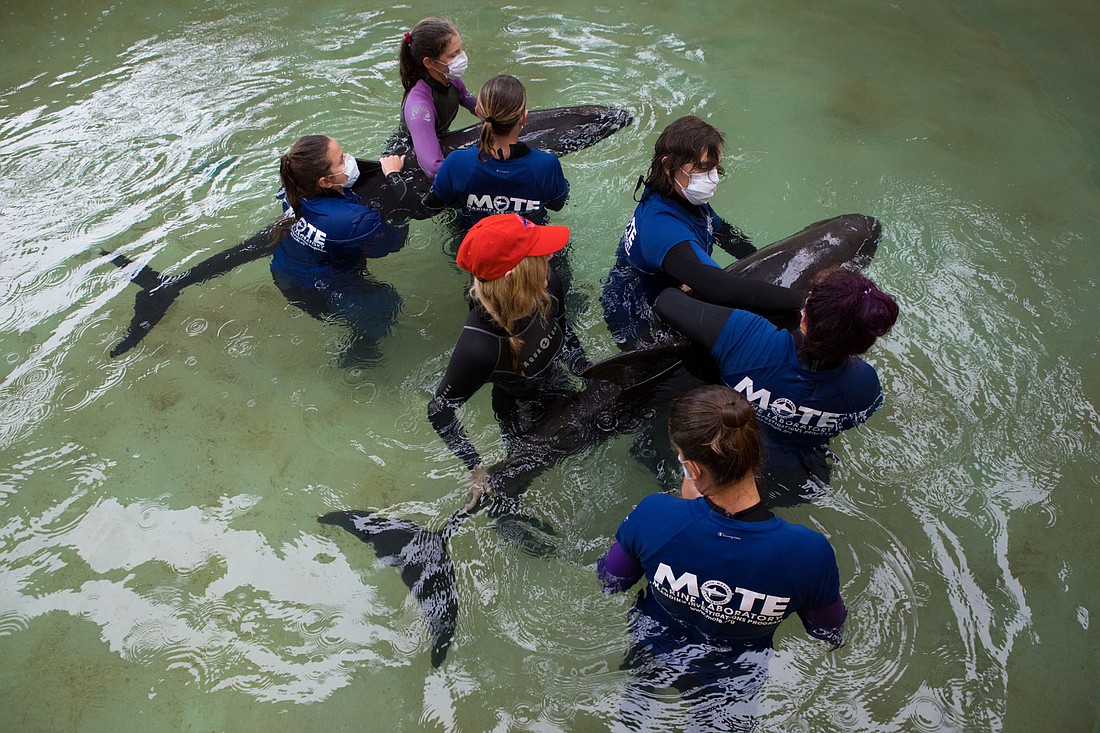- December 18, 2025
-
-
Loading

Loading

Lightning and Thunder, a pair of female pygmy killer whales brought to Mote Marine Laboratory and Aquarium after stranding in Clearwater Beach, have died, according to a social media post.
In a Facebook message published on Thursday evening, Mote also reported that Bolt, a whale rescued from the beach of Longboat Key this week, remains in critical condition and is undergoing treatment.
Lightning and Thunder were found Aug. 29 on the Pinellas County beach and transferred to Mote a day later. The reason for their stranding remains unknown, but Gretchen Lovewell, Mote’s Stranding Investigations Program manager, said a connection to this summer’s red tide bloom was unlikely.
The whales typically spend their lives far offshore and didn’t show behavioral signs of red tide exposure.
The remains of Thunder will be sent to University of Florida for advanced diagnostic imaging before returning to Mote for a necropsy. Lightning’s remains were similarly examined in Gainesville and found to have severe sinusitis. After necropsies, the skeletons of both whales will be preserved for further study.
Mote reported Lightning died about a day before Thunder. The two were “socially bonded,’’ the institute said in its Facebook release, and experts were unsure of the impact Lightning’s death might have had on Thunder.
Bolt, a melon-headed whale, is reported to be swimming freely in the Mote hospital tank and is monitored closely, though bloodwork reveals he is very sick.
Mote staff has collected blood serum samples from Thunder, Bolt and Lightning, and are sending them to the Florida Fish and Wildlife Conservation Commission’s Fish and Wildlife Research Institute to test for Florida red tide toxin exposure. Lab results may take several weeks.